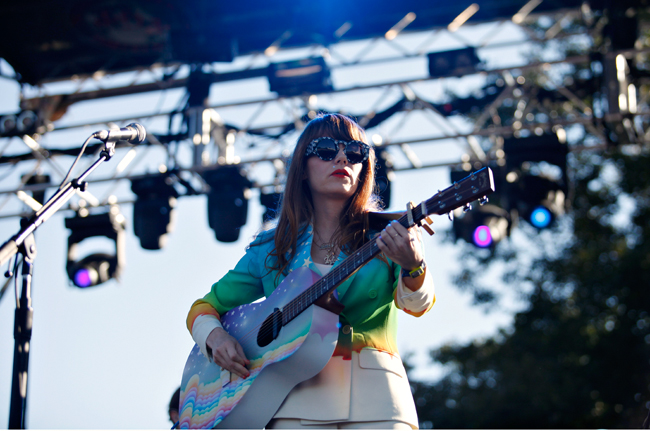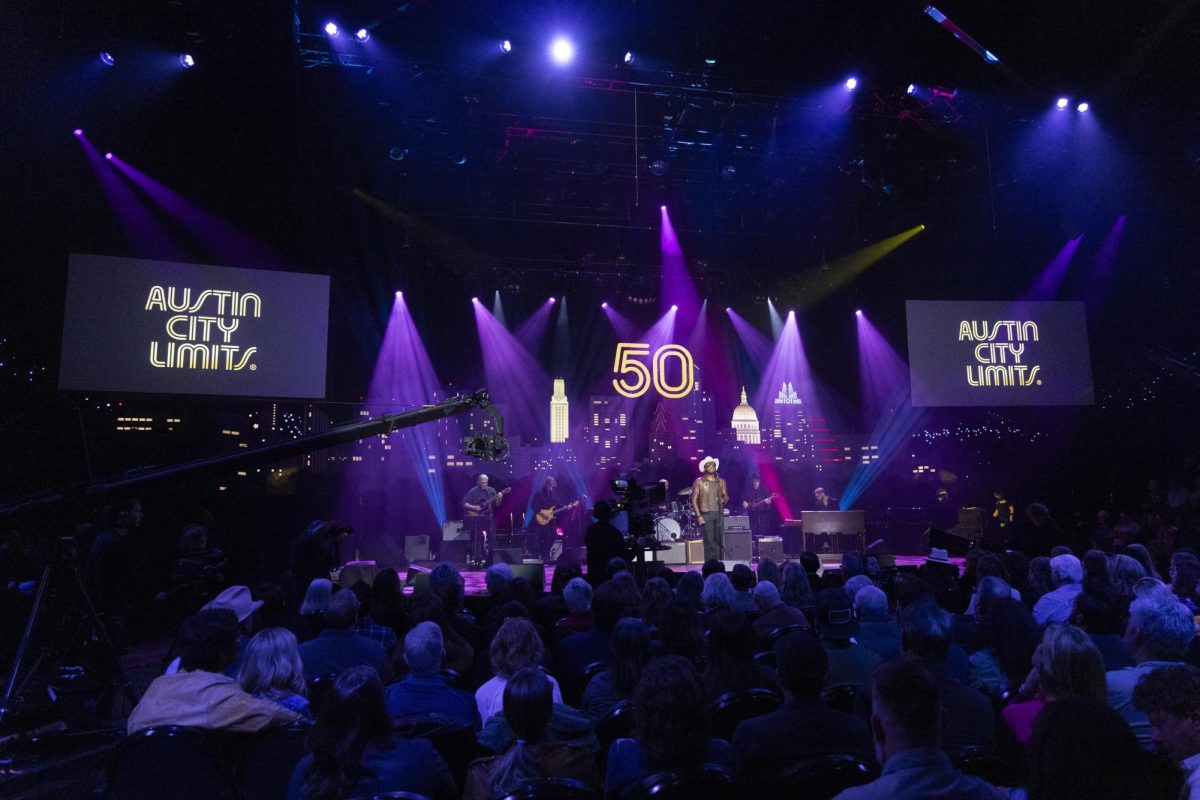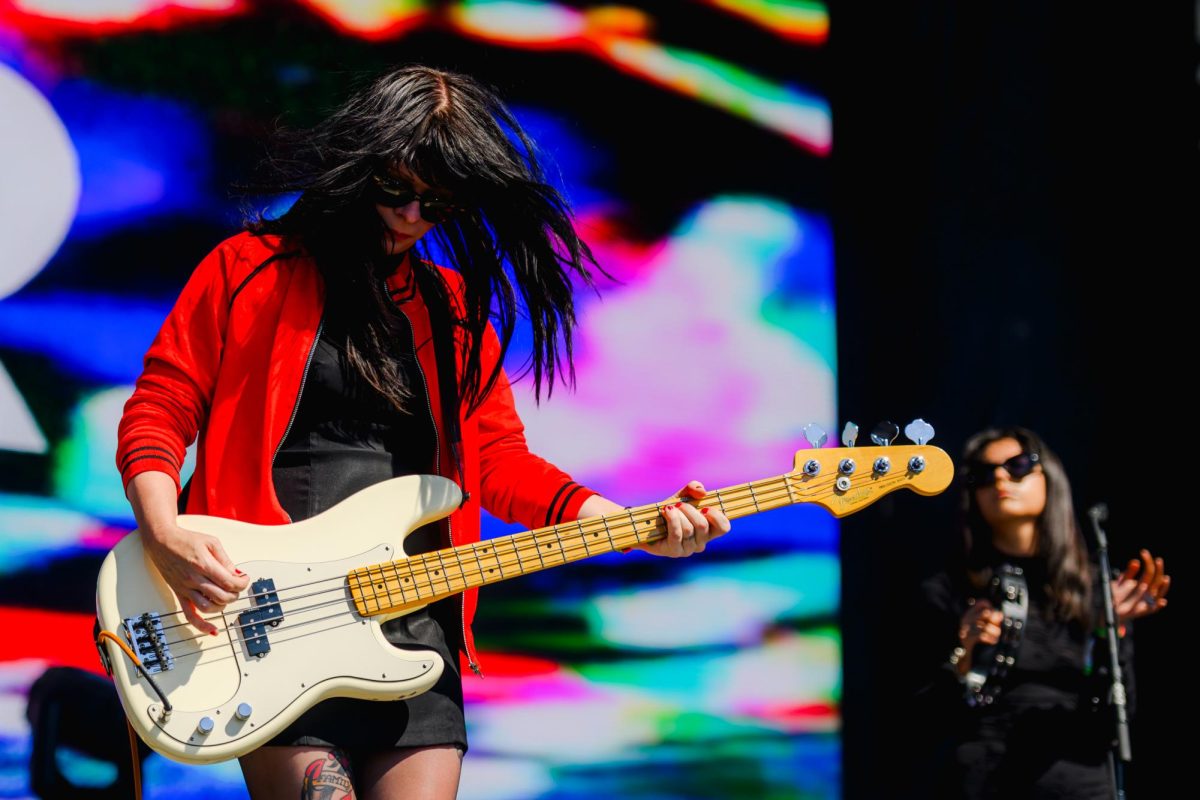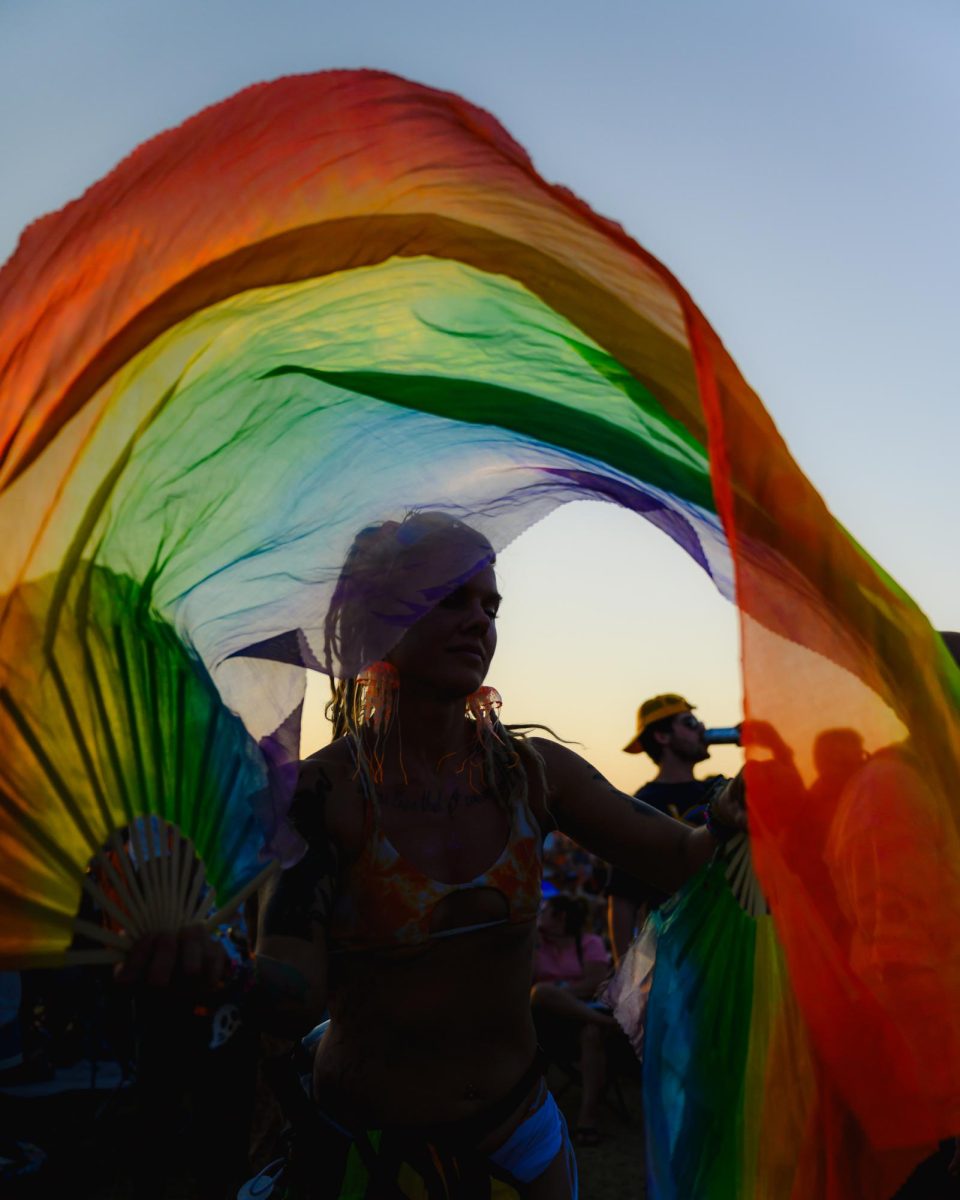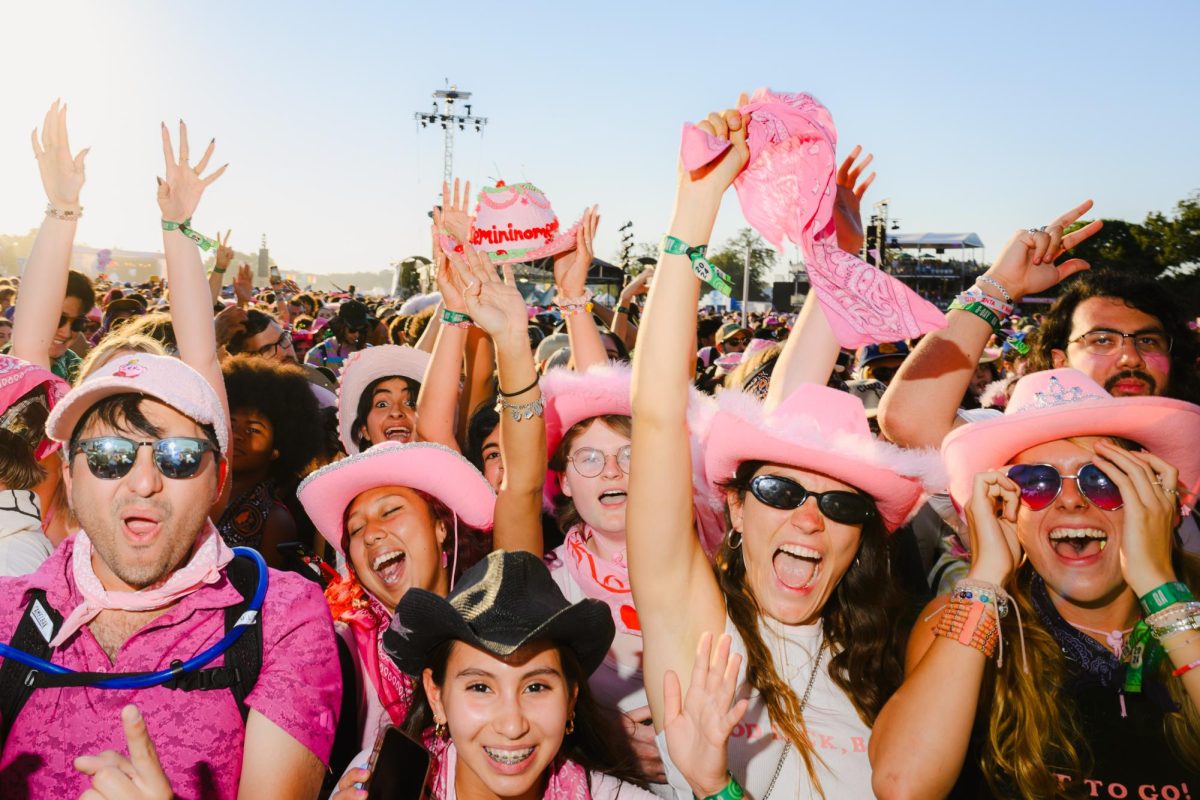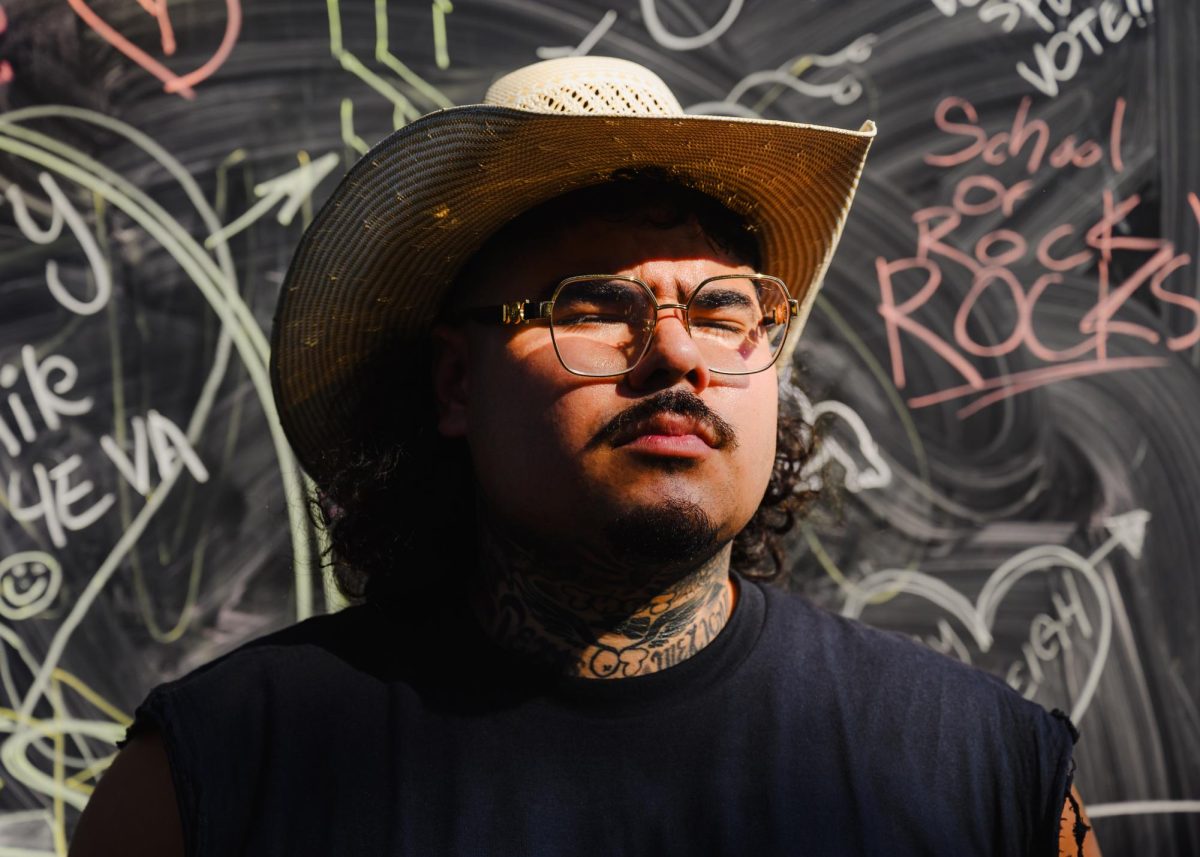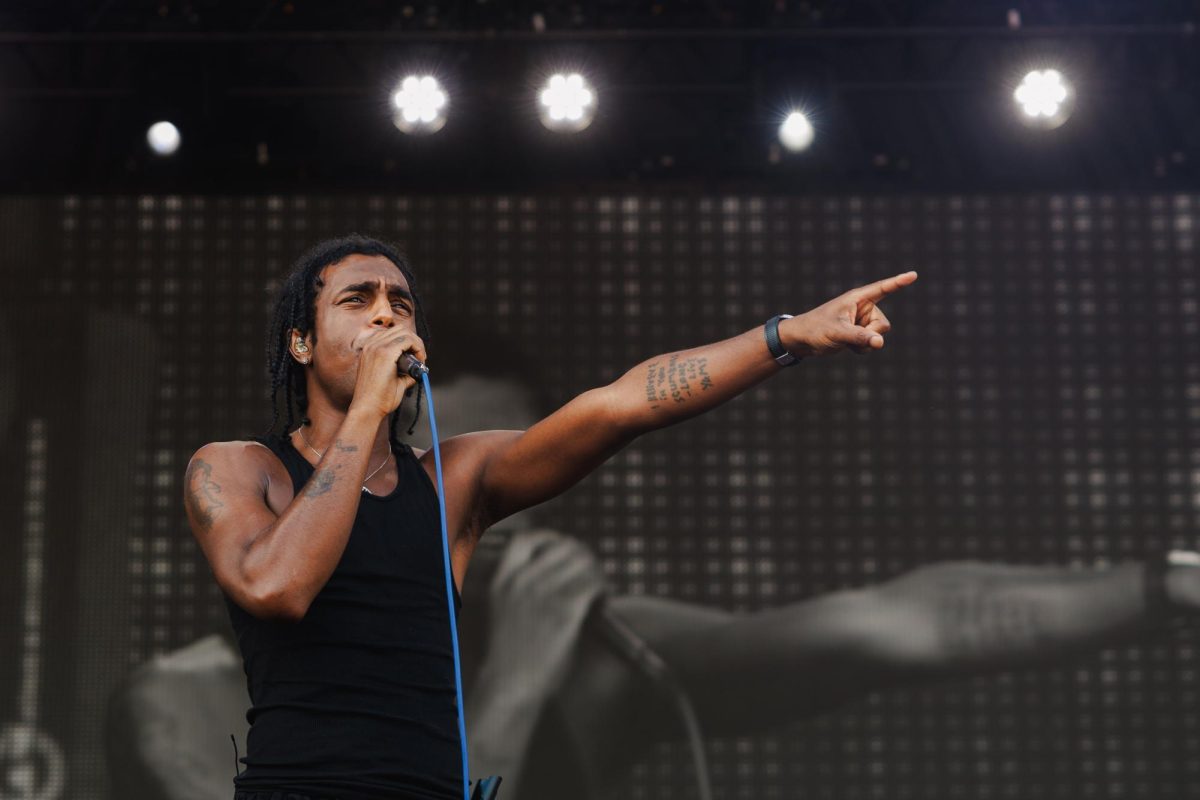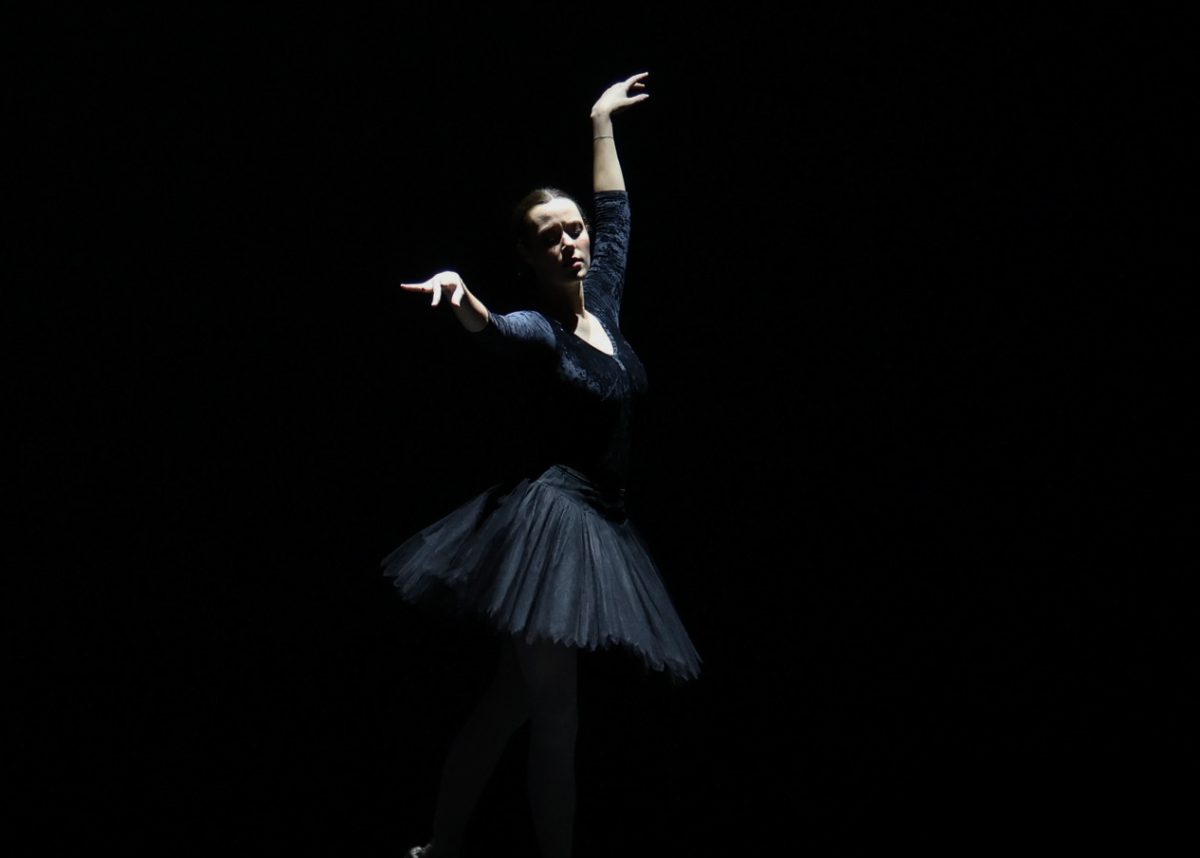In the 12 years since ACL has started, the influx of tourists and the sheer volume of patrons who travel to the city have done so much in terms of generating revenue and publicity. But, as the festival continues to change over time, it isn’t as clear which effects it will have — not only on artists but on the music industry itself.
Artists, such as the Austin-based country band Asleep at the Wheel, have watched the festival grow from its humble beginnings in 2002 as they’ve continued to return.
“It’s a pretty well-oiled machine now. It gets better every year, I have to admit,” said Ray Benson, Asleep at the Wheel’s frontman. “[The first year] was very exciting — they pulled it off. It was a real question mark and then, boom, everything sold out.”
The SoLa fashion boutique has attended and provided festival fashions since 2002, and SoLa founder Coral Smith also that ACL continues to improve.
“The festival has done a really good job of bringing in headliners,” Smith said. “They bring in acts for the older generations — people who have been there since day one — and have acts that will recruit younger people who’ll continue to go for a lifetime. They’ve done a great job of making it something for everybody, not just people from Austin, which is really good coming from a vendor standpoint, too.”
The variety of genres featured at ACL allows vendors and performers alike to reach a wider array of potential customers, something that is becoming increasingly important to artists today. As record sales continue to decrease, many artists must rely on performances to generate revenue.
While playing shows is how Benson and his bandmates make a living, he said performing is more than a job.
“Festivals are now the driving force of income. They’ve really helped a lot of bands stay in business,” Benson said. “I love playing festivals because, if I play in a small town, I know the people are here to see me. They paid money to see Asleep at the Wheel, but, at a festival, you make new fans and introduce your music to people who would have never come to see you.”
Jenny Lewis, who has been to ACL as a solo artist and as a member of the band Rilo Kiley, said the diverse audience that festivals attract allows for other changes in the music industry as well.
“I definitely have witnessed the rise of EDM,” Lewis said. “I came out of very indie rock festivals, and now one dude can go out with his laptop and get a whole tent of people jumping.”
This is something that Capital Cities, who performed at ACL for the first time this year, can attest to. Sebu Simonian, one half of the band’s duo, confirmed the importance of technology in the music industry. Capital Cities performs multiple remixed versions of their songs live.
“Technology is the core of all music creation,” Simonian said. “It has impacted us greatly — not just on the creation side but on the production side as well.”
While they do generate a large amount of exposure and potential revenue from new fans, artists enjoy these festivals as much as the attendees themselves.
“I’ve always been on the fan side,” Simonian said. “I’ve loved going to festivals, and I feel great that they’re becoming so popular.”
As artists become more dependant on festivals, and, as festivals continue to provide artists with new, young audiences, the live music scene at ACL is subject to change. Regardless of whether these impending changes are well-received by ACL veterans, they have created a thriving intersection between artists and technology.

